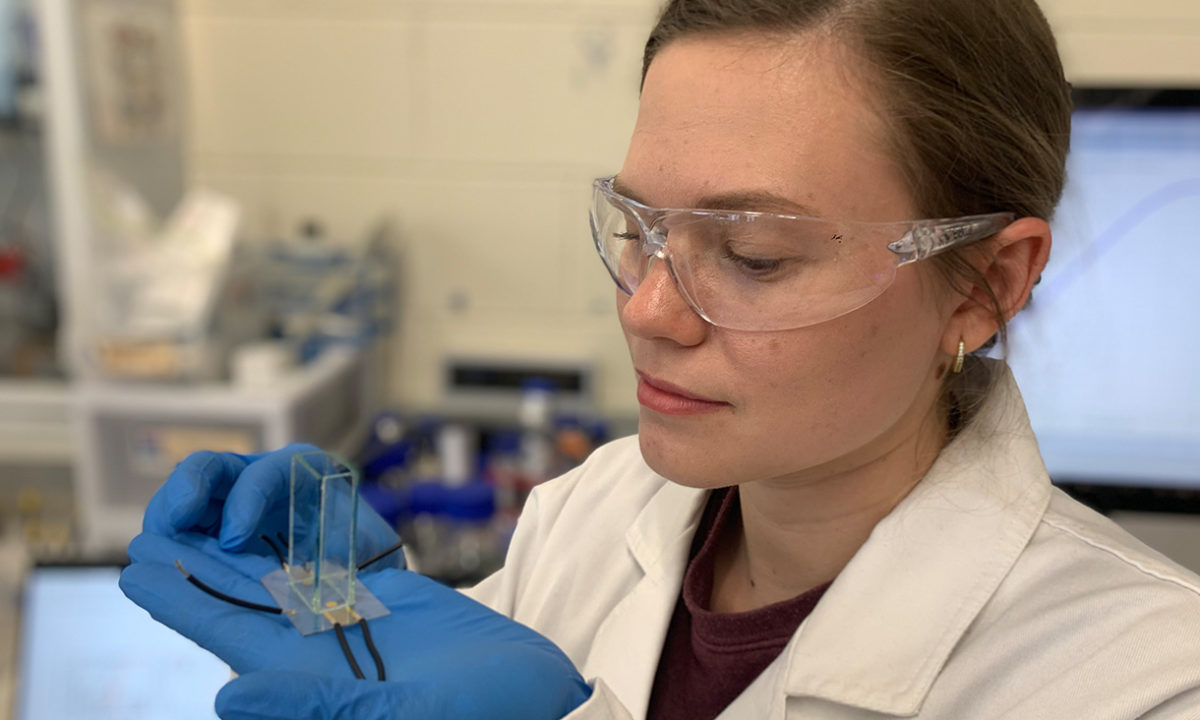Australian researchers have discovered that sound waves can be used to “divide and conquer” water molecules during electrolysis.
“The electrical output of the electrolysis with sound waves was about 14 times greater than electrolysis without them, for a given input voltage,” said RMIT researcher Yemima Ehrnst. “This was equivalent to the amount of hydrogen produced.”
The research, recently published in Advanced Energy Materials, could help to bring down green hydrogen production costs.
“One of the main challenges of electrolysis is the high cost of electrode materials used, such as platinum or iridium,” said RMIT Associate Professor Amgad Rezk.
Rezk said the use of sound waves to unlock more hydrogen could eliminate the need for expensive and corrosive materials like platinum or iridium. “As water is not a corrosive electrolyte, we can use much cheaper electrode materials such as silver,” he said.
The use of sound waves also prevented the build-up of hydrogen and oxygen bubbles on the electrodes, Ehrnst added, noting that this greatly improved conductivity and stability.
RMIT Professor Leslie Yeo said the discovery opens the door to using the new acoustic platform for other applications – especially when bubble build-up on the electrodes is a challenge.
“Our ability to suppress bubble build-up on the electrodes and rapidly remove them through high-frequency vibrations represents a major advance for electrode conductivity and stability,” said Yeo. “With our method, we can potentially improve the conversion efficiency leading to a net-positive energy saving of 27%.”
The researchers have already filed a provisional patent application for the technology, but they said they still need to overcome challenges around the integration of the sound wave innovation with existing electrolyzers to scale up their work.
“We are keen to collaborate with industry partners to boost and complement their existing electrolyzer technology and integrate into existing processes and systems,” said Yeo.
This content is protected by copyright and may not be reused. If you want to cooperate with us and would like to reuse some of our content, please contact: editors@pv-magazine.com.




3 comments
By submitting this form you agree to pv magazine using your data for the purposes of publishing your comment.
Your personal data will only be disclosed or otherwise transmitted to third parties for the purposes of spam filtering or if this is necessary for technical maintenance of the website. Any other transfer to third parties will not take place unless this is justified on the basis of applicable data protection regulations or if pv magazine is legally obliged to do so.
You may revoke this consent at any time with effect for the future, in which case your personal data will be deleted immediately. Otherwise, your data will be deleted if pv magazine has processed your request or the purpose of data storage is fulfilled.
Further information on data privacy can be found in our Data Protection Policy.